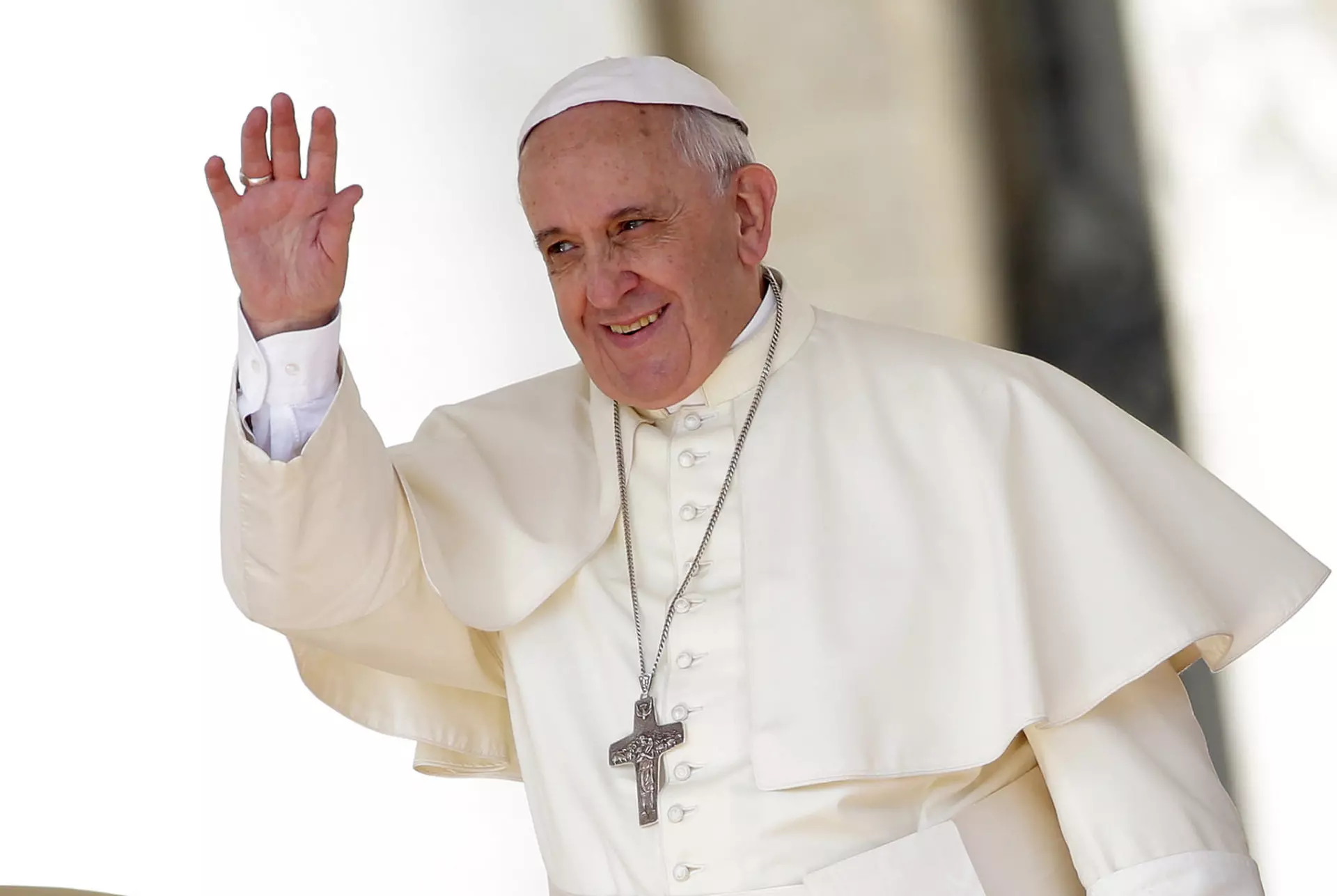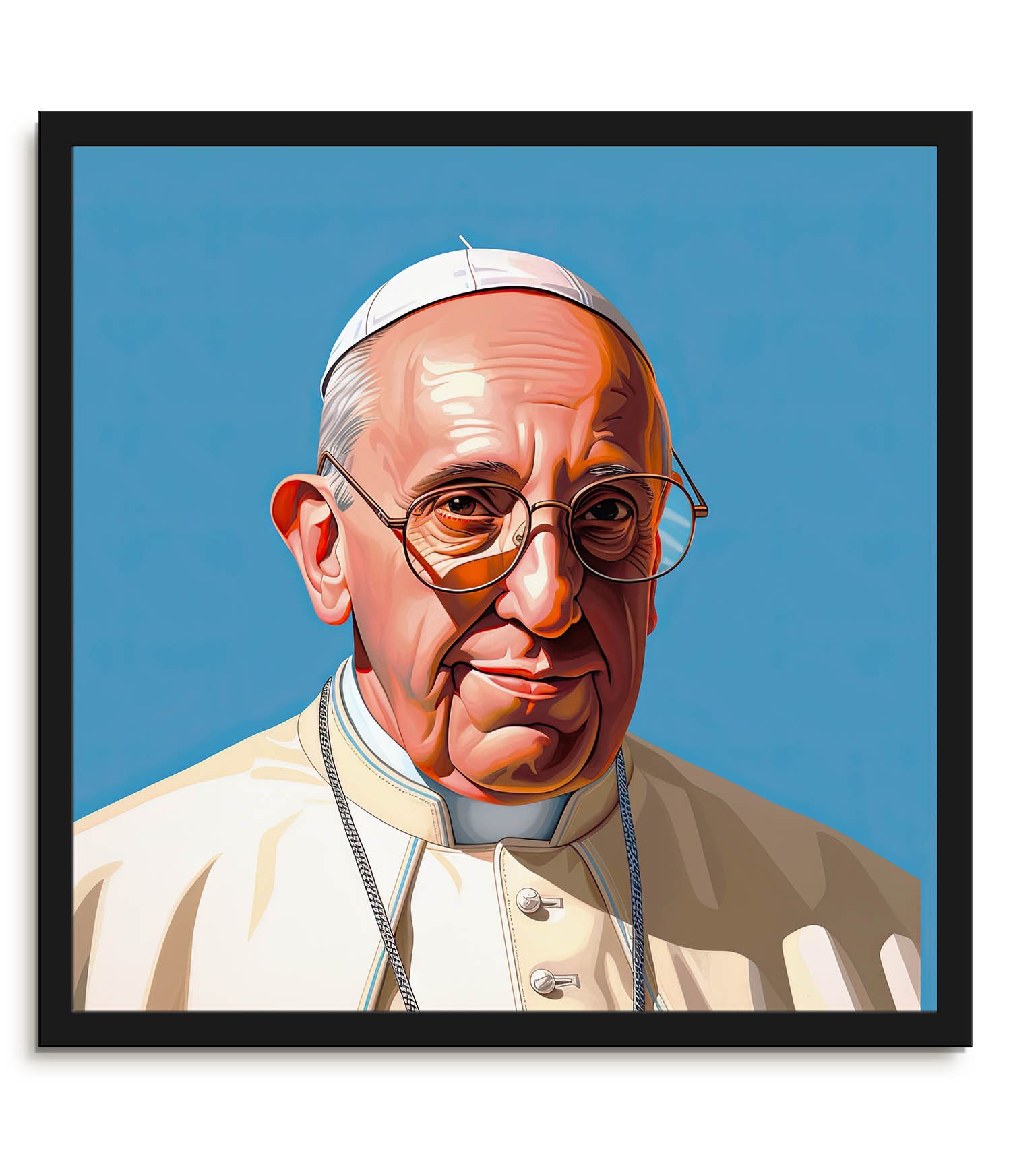Let's cut to the chase, folks. The question "When did Pope Francis die?" has been swirling around the internet for years, but here's the deal: Pope Francis is very much alive and kicking. Born on December 17, 1936, as Jorge Mario Bergoglio, he became the 266th pope of the Roman Catholic Church in 2013. Now, before we dive into the nitty-gritty, let's get one thing straight—this Pope isn't going anywhere anytime soon, at least not according to the Vatican. So, why are people asking if he's passed away? Stick around, and we'll break it down for you.
Here's the kicker: misinformation spreads faster than wildfire on the internet. You might've stumbled upon some sketchy headlines or rumors suggesting that Pope Francis has shuffled off this mortal coil. But guess what? Those are just that—rumors. The Vatican's official channels haven't issued any statement about his passing, so chill out, people. It's time to separate fact from fiction.
Now, before we get into the juicy details, let's talk about why this topic matters. For millions of Catholics worldwide, Pope Francis isn't just a religious figure—he's a beacon of hope, humility, and change. His leadership style has resonated with both believers and non-believers alike, making him one of the most influential figures of our time. So, when someone starts spreading rumors about his death, it's understandable that folks get worried. Let's dig deeper, shall we?
Read also:Dirty Dancing Couple The Ultimate Guide To The Iconic Love Story That Swept The World
Here's a quick roadmap of what we're about to uncover:
- Biography of Pope Francis
- Common misconceptions about his health and death
- Official Vatican statements on his well-being
- Why these rumors keep popping up
- How to spot fake news like a pro
- Do Us A Flavor The Ultimate Journey Into The World Of Custom Snack Creations
- Check the source
- Look for supporting evidence
- Use common sense
- Verify with multiple credible outlets
Biography of Pope Francis
Early Life and Key Facts
Alright, let's rewind the clock and take a peek at the life of Jorge Mario Bergoglio before he became Pope Francis. Born in Buenos Aires, Argentina, he grew up in a middle-class family with Italian roots. His dad was an accountant, and his mom was a homemaker. From an early age, young Jorge showed a deep interest in religion, eventually joining the Society of Jesus, or the Jesuits, in 1958. Now, here's a fun fact: before becoming a priest, he worked as a chemistry teacher. Who knew, right?
Let's take a look at some key highlights of his life:
| Fact | Detail |
|---|---|
| Birth Date | December 17, 1936 |
| Birthplace | Buenos Aires, Argentina |
| Ordained as Priest | December 13, 1969 |
| Became Archbishop of Buenos Aires | 1998 |
| Elected Pope | March 13, 2013 |
Why Do People Keep Asking "When Did Pope Francis Die?"
The Role of Fake News
Here's the deal, folks. In the age of social media, fake news travels faster than the truth. You might've seen some sketchy posts or articles claiming that Pope Francis has passed away. But here's the thing: these stories are usually part of a larger trend of misinformation designed to grab clicks and spread fear. It's not just about Pope Francis; it's a global phenomenon that affects everyone.
For example, in 2019, a viral tweet claimed that the Pope had died due to health complications. Within hours, the tweet went viral, sparking panic among Catholics worldwide. But guess what? The Vatican quickly debunked the claim, calling it "completely false." So, why do these rumors keep popping up? Let's break it down.
Official Vatican Statements on Pope Francis's Health
Transparency and Clarity
The Vatican has been pretty transparent about Pope Francis's health over the years. While it's true that the Pope has faced some health challenges, including a recent knee surgery, the Vatican has always been upfront about these issues. In fact, the Pope himself has joked about his health during public appearances, saying things like, "I'm not immortal, but I'm doing my best!"
Read also:
Here's the bottom line: if something serious were to happen to Pope Francis, the Vatican would be the first to announce it. They've got a pretty solid track record when it comes to communicating with the world, so you can trust their word on this one.
Common Misconceptions About Pope Francis's Death
Separating Fact from Fiction
Let's talk about some of the most common misconceptions surrounding Pope Francis's death. First off, there's the whole "Pope Francis is secretly replaced by a clone" theory. Yeah, we're not even going there. Second, there's the claim that he passed away during the pandemic, but the Vatican has repeatedly denied this. Lastly, there's the whole "Pope Francis is actually dead, and they're hiding it" thing. Spoiler alert: it's not true.
So, how do we separate fact from fiction? Simple. Stick to credible sources like the Vatican's official website or reputable news outlets. If a story sounds too outrageous to be true, it probably is.
Why Do These Rumors Keep Spreading?
The Psychology Behind Fake News
Let's get psychological for a moment. Why do people fall for these rumors in the first place? It's all about confirmation bias, folks. When we hear something that aligns with our pre-existing beliefs or fears, we're more likely to believe it without questioning its validity. For example, if someone already thinks the Vatican is hiding something, they're more likely to believe a rumor about Pope Francis's death.
Another factor is the sheer volume of information we're bombarded with every day. It's easy to get overwhelmed and click on the first headline that catches our eye, even if it's not true. That's why critical thinking is more important than ever in today's world.
How to Spot Fake News Like a Pro
Your Guide to Navigating the Information Jungle
Alright, let's equip you with some tools to spot fake news like a pro. First off, always check the source. If the article comes from a sketchy website with a weird URL, chances are it's not legit. Second, look for supporting evidence. A real news story will usually include quotes from credible sources, data, or official statements. Third, use your common sense. If something sounds too crazy to be true, it probably is.
Here's a quick checklist to help you out:
Pope Francis's Legacy: Why It Matters
Impact on the Catholic Church and Beyond
Now that we've debunked the rumors, let's talk about why Pope Francis's legacy matters. Since becoming Pope in 2013, he's been a vocal advocate for social justice, environmental protection, and interfaith dialogue. He's also made headlines for his progressive stance on issues like climate change and LGBTQ+ rights, earning him both admirers and critics.
For millions of Catholics worldwide, Pope Francis represents hope and change in a rapidly changing world. His leadership style, characterized by humility and compassion, has resonated with people of all faiths and backgrounds. So, when someone starts spreading rumors about his death, it's not just about the Pope—it's about the future of the Catholic Church and its role in the world.
Conclusion: What Now?
Alright, folks, let's wrap this up. The question "When did Pope Francis die?" has been debunked time and time again, yet it keeps popping up. Why? Because misinformation is a powerful force in today's world. But here's the good news: you now have the tools to spot fake news like a pro and stay informed.
So, what can you do? First, share this article with your friends and family to help spread the truth. Second, always verify information before believing it. And lastly, keep an open mind and a critical eye when navigating the information jungle.
Now, it's your turn. Leave a comment below and let us know what you think. Have you ever fallen for a fake news story? How did you spot it? And don't forget to share this article with your network. Together, we can make the internet a better place.


